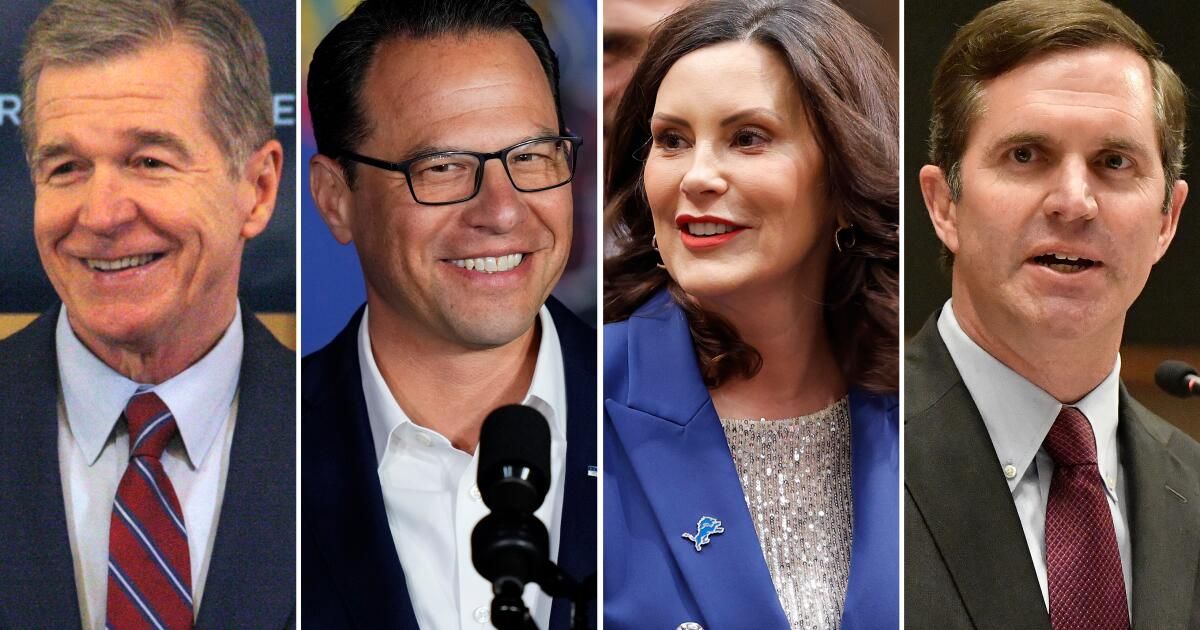Democratic Governor of North Carolina Roy Cooper
(Hannah Schoenbaum/Associated Press)
Cooper became governor in 2017 after a long career in politics in a state where Democrats have competed closely in recent presidential elections.
Cooper gained national recognition in 2016 when, as attorney general, he opposed “House Bill 2,” a measure that would have required people to use bathrooms based on their gender identity assigned at birth. Cooper denounced the law as unconstitutional and refused to go to court to defend it.
The law sparked nationwide protests and several companies refused to do business in North Carolina. By one estimate, the economic damage to the state amounted to $3.76 billion, as many entertainers, sports teams and others announced they would no longer do business there.
In 2017, the year after it was enacted, the North Carolina Legislature partially repealed it, a move that was supported by Cooper. Most of the rest of the legislation expired in 2020 due to a sunset clause.
Cooper faced off against incumbent Republican Gov. Pat McCrory, who had backed the so-called public bathroom bill. Although Cooper held a clear voting advantage in the 2016 race, McCrory alleged voter fraud, without offering evidence. Recounts ended up widening Cooper’s lead, and McCrory eventually conceded defeat a month after the election.
Cooper, 67, now in his second term, has a long political history in the swing state, having served for nearly two decades in the North Carolina House and Senate. He won the state attorney general position in 2000 before ascending to the state's top political office.












